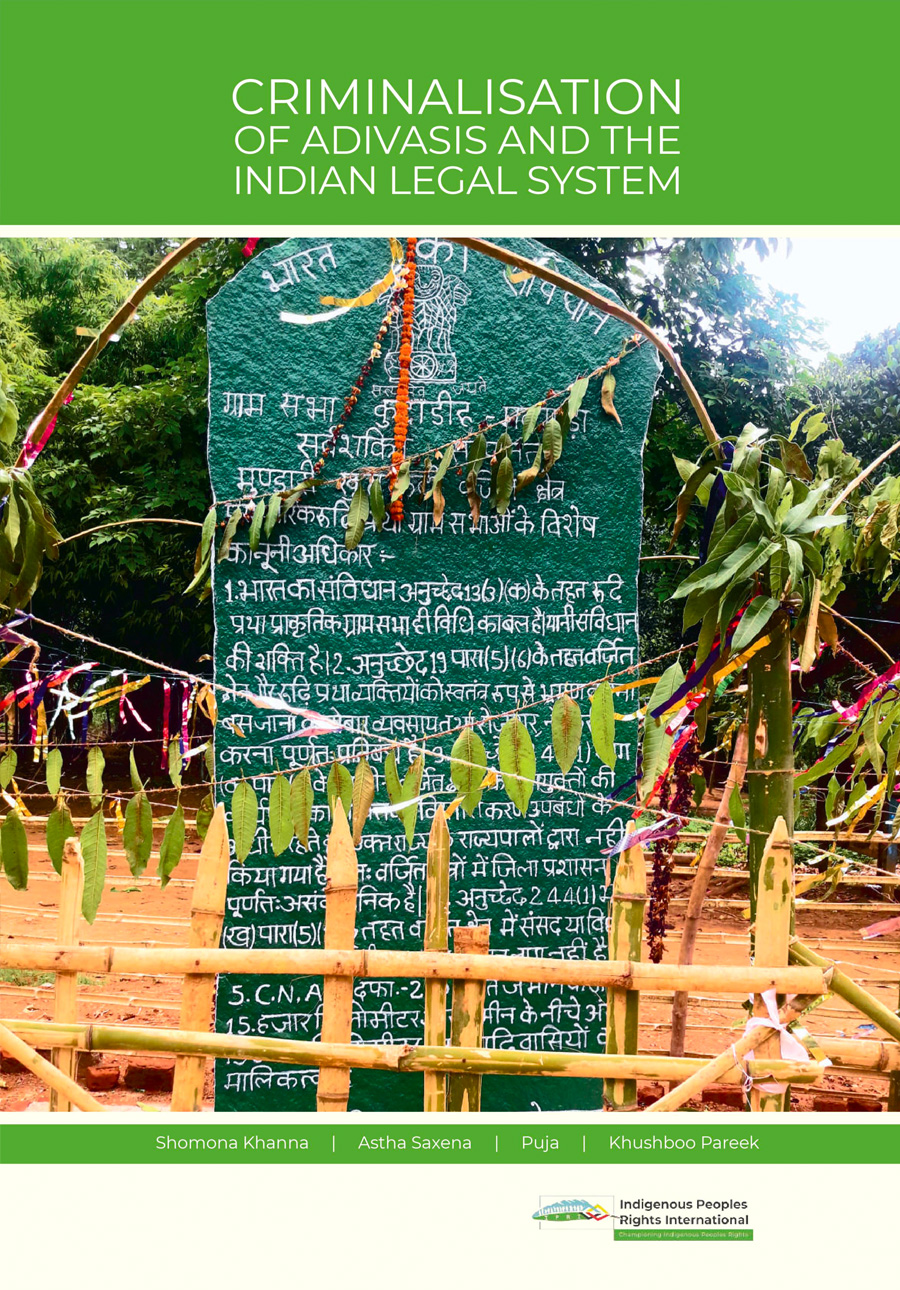Impunity in India is extensive and deeply entrenched, especially if it involves the upper castes. This is exemplified in the conviction rate for crimes committed against Scheduled Tribes which was merely 28.5 percent during 2020 despite provision for speedy trial in ‘special courts’.
With this reality and as part of its work on highlighting and monitoring incidents of criminalisation, violence, and impunity against Indigenous Peoples, Indigenous Peoples Rights International (IPRI) commissioned a research examining the dimensions of criminalisation of Adivasis in India.
Written by Shomona Khanna, Astha Saxena, Puja, and Khushboo Pareek, Criminalisation of Adivasis and the Indian Legal System, provides a 360-degree view on criminalisation of Adivasis. A first of its kind, this study provides a firm foundation to kickstart future engagements and inquiries on this critical issue relating to upholding the rights of the Adivasis in India. IPRI hopes that this publication will play a part in inspiring Indigenous Peoples’ movements in India and beyond to strengthen their ongoing initiatives to protect their rights through engaging with the legal system. We also hope that it will be a useful resource material for policymakers and advocates to having deeper awareness on the importance of strengthening protection of Adivasis through a more comprehensive and efficient legal and justice systems.
With this reality and as part of its work on highlighting and monitoring incidents of criminalisation, violence, and impunity against Indigenous Peoples, Indigenous Peoples Rights International (IPRI) commissioned a research examining the dimensions of criminalisation of Adivasis in India.
Written by Shomona Khanna, Astha Saxena, Puja, and Khushboo Pareek, Criminalisation of Adivasis and the Indian Legal System, provides a 360-degree view on criminalisation of Adivasis. A first of its kind, this study provides a firm foundation to kickstart future engagements and inquiries on this critical issue relating to upholding the rights of the Adivasis in India. IPRI hopes that this publication will play a part in inspiring Indigenous Peoples’ movements in India and beyond to strengthen their ongoing initiatives to protect their rights through engaging with the legal system. We also hope that it will be a useful resource material for policymakers and advocates to having deeper awareness on the importance of strengthening protection of Adivasis through a more comprehensive and efficient legal and justice systems.





